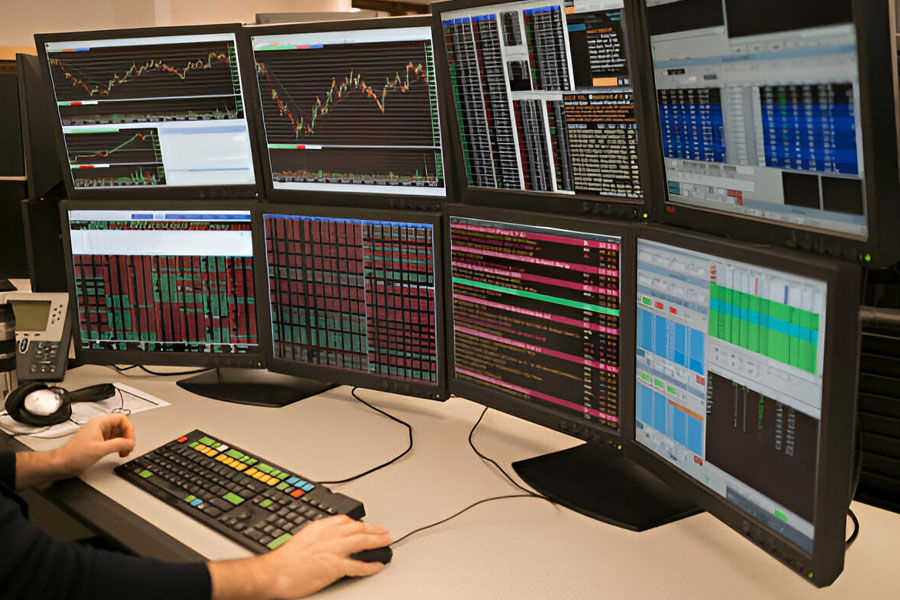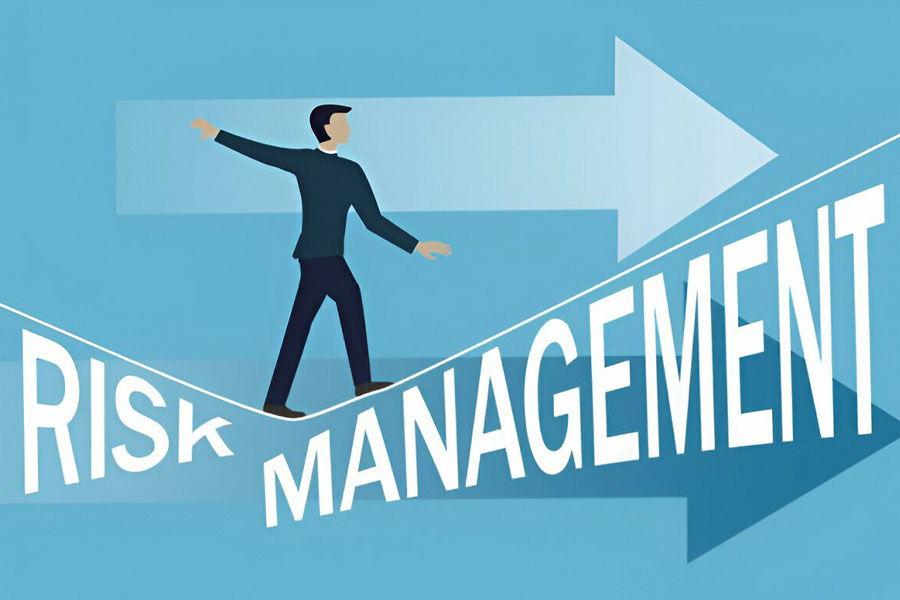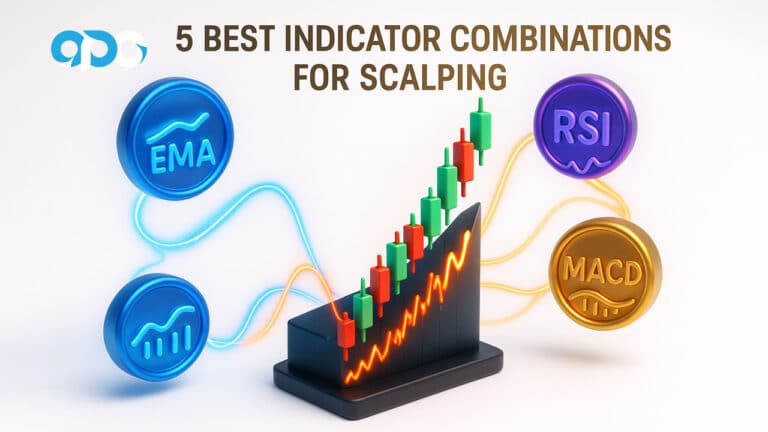Day trading is the practice of buying and selling financial instruments within the same trading day, aiming to profit from short-term price movements. Day traders typically close all their positions before the market closes to avoid the risk of overnight price changes. This style of trading requires a keen eye for market trends, swift decision-making abilities, and a deep understanding of the securities being traded. Many traders rely on a trusted broker for forex trading to facilitate their transactions effectively.

What is Day Trading?
Day traders often utilize leverage to increase their buying power, which can amplify both gains and losses. Due to the high frequency of trades, day trading can result in substantial transaction costs, making it essential to choose a brokerage with competitive fees.

Differences Between Day Trading and Other Trading Styles
- Swing Trading: Swing trading involves holding positions for several days to weeks. Swing traders aim to profit from short- to medium-term price movements, relying on technical analysis and sometimes fundamental analysis to guide their decisions.
- Position Trading: Position traders focus on long-term trends, holding positions for months or years. This style is less stressful compared to day trading and involves making fewer trades based on comprehensive fundamental analysis.
- Scalping: Scalping is a subset of day trading that involves making dozens or hundreds of trades in a day to “scalp” small profits. Scalpers aim for small price increments and rely on high trade volumes to achieve significant returns.
Pros and Cons of Day Trading
Pros:
- Potential for High Profits: With the right strategy and risk management, day trading can be highly profitable.
- Independence and Flexibility: Day traders enjoy the flexibility to work from anywhere with an internet connection and the independence of being their own boss.
- No Overnight Risk: Since all positions are closed before the market closes, day traders avoid the risk of adverse overnight price movements.
Cons:
- High Risk of Significant Losses: The potential for high returns comes with the risk of substantial losses, especially if trades are not carefully managed.
- Requires a Substantial Time Commitment: Day trading demands constant attention to market movements and news, often requiring long hours of screen time.
- Psychological Stress: The fast-paced nature of day trading can be stressful, and traders need to manage their emotions effectively to avoid costly mistakes.
Essential Skills for Day Traders
To become a successful day trader, developing essential skills is paramount. This section delves into the critical skills every day trader must hone to navigate the fast-paced trading environment effectively.
Analytical Skills
Successful day traders need to analyze market data quickly and accurately. This involves understanding chart patterns, market indicators, and financial news. Analytical skills help traders make informed decisions based on data rather than emotions. Here are some key analytical tools and concepts:
- Chart Patterns: Recognizing patterns such as head and shoulders, triangles, and flags can help predict future price movements. For example, the head and shoulders pattern indicates a potential reversal, where a stock price moves up to a peak (head) and is flanked by two lower peaks (shoulders). Triangles, such as ascending or descending triangles, signify continuation patterns where the price is expected to break out in the direction of the prior trend.
- Indicators: Utilizing indicators like moving averages, Bollinger Bands, and RSI (Relative Strength Index) helps identify trends and potential entry and exit points. Moving averages smooth out price data to identify the direction of the trend, while Bollinger Bands measure volatility and potential overbought or oversold conditions. The RSI measures the speed and change of price movements, helping traders spot potential reversal points.
- Volume Analysis: Understanding volume trends can confirm the strength of a price movement. High trading volume indicates strong investor interest and can validate a price move, whereas low volume might suggest a lack of conviction.
- Smart Money Concepts: This involves tracking the actions of institutional investors, often considered the “smart money,” as they have more resources and information. Techniques like following the Commitment of Traders (COT) reports can provide insights into the positions held by large traders and market sentiment.
- Inner Circle Trader (ICT): The Inner Circle Trader method focuses on understanding market manipulation by institutional traders. It involves learning to identify “smart money” footprints, such as liquidity pools, and using this knowledge to predict price movements. ICT strategies often include concepts like order blocks, fair value gaps, and market structure shifts.
- Read the Market (RTM): RTM emphasizes price action and market structure to understand the underlying forces driving market movements. Traders using RTM focus on interpreting candlestick patterns, price levels, and market phases to make trading decisions. This method aims to “read” the intentions of other market participants by analyzing price behavior.
Discipline and Patience
Day trading requires strict discipline and patience. Traders must stick to their strategies and avoid impulsive decisions based on emotions. Successful traders develop a routine, follow their trading plan, and resist the urge to chase the market. Key aspects include:
- Sticking to the Plan: Following a well-defined trading plan and not deviating based on short-term market noise. A trading plan outlines your strategy, risk management rules, and trading goals, helping you stay focused and disciplined.
- Waiting for the Right Opportunities: Exercising patience to wait for high-probability trades rather than jumping at every potential opportunity. This involves being selective about the trades you take and ensuring they align with your trading plan and criteria.
Risk Management
Effective risk management is crucial in day trading. This includes setting stop-loss orders, diversifying trades, and never risking more than a small percentage of your capital on a single trade. Core principles of risk management involve:
- Stop-Loss Orders: Automatically sell positions to limit losses at predetermined levels. Setting stop-loss orders helps protect your capital by preventing significant losses when the market moves against your position.
- Diversification: Spreading risk across multiple trades to avoid significant losses from a single position. Diversifying your trades across different assets, sectors, or strategies can reduce the impact of a single losing trade on your overall portfolio.
- Position Sizing: Determining the amount of capital to allocate to each trade based on risk tolerance. Position sizing involves calculating the appropriate trade size to ensure you do not risk too much of your capital on any single trade. This helps manage risk and maintain a balanced portfolio.
Technical Analysis
Day traders rely heavily on technical analysis to make trading decisions. This involves studying historical price movements and using various indicators to predict future price movements. Key components include:
- Trend Analysis: Identifying the direction of market trends to align trades with the overall market movement. Trend analysis involves recognizing whether the market is in an uptrend, downtrend, or sideways trend, and making trades that align with the predominant direction.
- Support and Resistance Levels: Determining key price levels where the market tends to reverse or consolidate. Support levels are price points where demand is strong enough to prevent the price from falling further, while resistance levels are where selling pressure prevents the price from rising. Identifying these levels can help traders make better entry and exit decisions.
- Momentum Indicators: Using tools like MACD (Moving Average Convergence Divergence) and RSI to gauge the strength and speed of price movements. Momentum indicators help identify the strength of a trend and potential reversal points. MACD, for example, shows the relationship between two moving averages of a security’s price, while RSI measures the magnitude of recent price changes to evaluate overbought or oversold conditions.
- Smart Money Concepts: Tracking the actions of institutional investors, or “smart money,” can provide valuable insights. Smart money concepts involve analyzing the behavior of large investors and understanding how their actions impact the market. This can include studying their buying and selling patterns, volume spikes, and other indicators of institutional activity.
- Inner Circle Trader (ICT): The ICT method involves understanding market manipulation by institutional traders. This strategy focuses on identifying key levels and patterns used by “smart money” to manipulate the market. Techniques such as identifying liquidity pools, order blocks, and fair value gaps are central to ICT strategies.
- Read the Market (RTM): RTM emphasizes price action and market structure. This approach involves interpreting candlestick patterns, key price levels, and market phases to make informed trading decisions. RTM traders aim to understand the intentions of other market participants by analyzing price behavior and market structure.

Detailed Explanations and Examples
Chart Patterns
Recognizing chart patterns is essential for predicting future price movements. Here are some common patterns and their implications:
- Head and Shoulders: This pattern indicates a potential trend reversal. It consists of three peaks: a higher peak (head) between two lower peaks (shoulders). When the price breaks below the neckline (the support level connecting the lows of the shoulders), it signals a bearish reversal.
- Triangles: Triangles can be ascending, descending, or symmetrical. An ascending triangle forms when the price makes higher lows and a horizontal resistance level, indicating a potential breakout upwards. A descending triangle has lower highs and a horizontal support level, suggesting a potential breakout downwards. Symmetrical triangles show consolidation, where the price could break out in either direction.
- Flags and Pennants: These continuation patterns indicate a brief consolidation before the price continues in the direction of the prior trend. Flags are rectangular patterns that slope against the trend, while pennants are small symmetrical triangles.
Indicators
Indicators are mathematical calculations based on price and volume. Here are some commonly used indicators and their applications:
- Moving Averages: Moving averages smooth out price data to identify the direction of the trend. The most common types are the simple moving average (SMA) and the exponential moving average (EMA). SMAs give equal weight to all data points, while EMAs give more weight to recent data, making them more responsive to price changes.
- Bollinger Bands: Bollinger Bands consist of a moving average and two standard deviations plotted above and below it. They measure volatility and provide a visual representation of overbought or oversold conditions. When the price touches the upper band, it suggests overbought conditions, while touching the lower band indicates oversold conditions.
- Relative Strength Index (RSI): RSI measures the magnitude of recent price changes to evaluate overbought or oversold conditions. It ranges from 0 to 100, with values above 70 indicating overbought conditions and below 30 indicating oversold conditions. RSI can also help identify potential reversal points.
Volume Analysis
Volume analysis helps confirm the strength of a price movement. Key concepts include:
- Volume Spikes: Significant increases in volume can indicate strong investor interest and validate price movements. For example, a breakout from a consolidation pattern with high volume suggests a higher probability of continuation.
- On-Balance Volume (OBV): OBV is a cumulative volume indicator that adds volume on up days and subtracts volume on down days. It helps identify whether volume is supporting the price trend. Rising OBV indicates buying pressure, while falling OBV indicates selling pressure.
Smart Money Concepts
Tracking institutional investors, often referred to as “smart money,” can provide valuable insights into market trends. Techniques include:
- Commitment of Traders (COT) Reports: These reports provide a weekly snapshot of the positions held by large traders, such as institutional investors and commercial hedgers. Analyzing COT data can help identify market sentiment and potential turning points.
- Volume-Weighted Average Price (VWAP): VWAP is used by institutional traders to gauge the average price at which a security has traded throughout the day. It provides a benchmark for evaluating the efficiency of trade executions. If the price is above the VWAP, it suggests a bullish trend, while a price below the VWAP indicates a bearish trend.
Inner Circle Trader (ICT)
The ICT method involves understanding and trading based on market manipulation by institutional traders. Key concepts include:
- Order Blocks: These are areas where institutional traders place large orders, creating significant support or resistance levels. Identifying order blocks can help predict potential price reversals or continuation patterns.
- Fair Value Gaps (FVG): These are gaps between the high and low of a price movement that have not been filled by subsequent price action. FVGs can act as support or resistance levels and are often used by ICT traders to identify potential trade setups.
- Market Structure Shifts: ICT traders focus on shifts in market structure, such as changes in trend direction or the formation of higher highs and higher lows (bullish structure) or lower highs and lower lows (bearish structure). Recognizing these shifts can help traders align their trades with the overall market trend.
Read More: Do you need 25k to day trade forex
Read the Market (RTM)
RTM emphasizes price action and market structure to understand the underlying forces driving market movements. Key concepts include:
- Candlestick Patterns: Candlestick patterns, such as doji, engulfing patterns, and hammers, provide insights into market sentiment and potential reversal points. For example, a doji indicates indecision, while an engulfing pattern suggests a potential reversal.
- Key Price Levels: Identifying key support and resistance levels helps traders make informed entry and exit decisions. These levels are often areas where the price has previously reversed or consolidated.
- Market Phases: Understanding the different phases of the market, such as accumulation, markup, distribution, and markdown, can help traders anticipate potential trend changes. For example, the accumulation phase indicates that smart money is buying, leading to a potential uptrend.
By developing these essential skills, day traders can enhance their ability to analyze the market, manage risk, and make informed trading decisions. Each of these skills plays a crucial role in navigating the complexities of day trading and achieving long-term success.
Setting Up for Day Trading
Setting up for day trading involves making several critical decisions that can impact your trading success. This section will guide you through choosing the right brokerage, selecting a trading platform, and creating an optimal workspace.
Choosing the Right Brokerage
Choosing the right brokerage is one of the most critical decisions for anyone becoming a day trader. Your brokerage can significantly influence your trading experience and profitability. Here are the key factors to consider when selecting a brokerage:
- Low Commissions and Fees: High transaction costs can eat into profits, so it’s essential to choose a brokerage with competitive pricing. Look for brokers that offer low commissions on trades and minimal fees for account maintenance. Some brokers may even offer commission-free trading on certain products, which can be highly beneficial for day traders making frequent trades.
- Reliable and Fast Trade Executions: Speed is crucial in day trading, and slow executions can result in missed opportunities or unfavorable prices. Ensure that the brokerage provides a robust and fast trading platform that can handle high-frequency trading. A delay of even a few seconds can impact your ability to capitalize on market movements.
- Comprehensive Trading Tools and Resources: Access to advanced charting tools, real-time data, and educational resources can enhance trading performance. A good brokerage should offer a suite of tools that includes technical analysis indicators, customizable charts, and real-time market data. Educational resources such as webinars, tutorials, and market analysis can also be invaluable, especially for new traders.
Selecting a Trading Platform
A good trading platform is essential for effective day trading. It should be user-friendly, offer real-time data, and support the technical analysis tools you need. Here are some popular platforms to consider:
- MetaTrader 4 and 5: Widely used by forex and CFD traders, these platforms offer advanced charting tools, custom indicators, and automated trading capabilities. MetaTrader platforms are known for their robust analytical tools and user-friendly interface, making them a favorite among day traders.
- Thinkorswim by TD Ameritrade: Known for its robust trading tools and educational resources, Thinkorswim is suitable for traders of all experience levels. It offers advanced charting capabilities, a wide range of technical indicators, and comprehensive educational content. Thinkorswim also provides paper trading accounts for practice without risking real money.
- Interactive Brokers’ Trader Workstation: Offers extensive tools and features for professional traders, including algorithmic trading and risk management tools. Trader Workstation supports trading in various asset classes and provides advanced trading algorithms and market scanners, making it a versatile choice for serious day traders.
Setting Up Your Workspace
Creating an efficient workspace can significantly enhance your day trading performance. A well-organized and comfortable trading environment allows you to focus better and react swiftly to market changes. Consider the following when setting up your workspace:
- Multiple Monitors: Use multiple monitors to track various markets, charts, and news sources simultaneously. Having multiple screens can help you monitor different assets, indicators, and news feeds without constantly switching tabs, improving your ability to make informed trading decisions quickly.
- High-Speed Internet Connection: Ensure a reliable and fast internet connection to avoid delays in data feeds and trade executions. A stable and high-speed internet connection is critical for real-time data access and swift trade executions. Consider using a wired connection rather than Wi-Fi for better stability and speed.
- Comfortable and Ergonomic Chair and Desk Setup: Invest in ergonomic furniture to maintain comfort and focus during long trading sessions. An ergonomic chair and desk setup can prevent physical discomfort and fatigue, allowing you to concentrate better on your trades. Adjustable chairs, standing desks, and proper monitor placement can contribute to a healthier and more productive trading environment.
- Adequate Lighting: Proper lighting is essential for reducing eye strain and maintaining focus. Natural light is ideal, but if it’s not available, ensure you have adequate artificial lighting. Adjustable desk lamps and monitors with blue light filters can also help reduce eye strain during long trading hours.
By carefully selecting your brokerage, trading platform, and setting up an efficient workspace, you lay a strong foundation for your day trading activities. These preparations not only improve your trading efficiency but also enhance your overall trading experience. Becoming a day trader requires meticulous planning and the right tools, and these steps will help you get started on the right foot.
Read More: Backtesting a Trading Strategy
Day Trading Strategies
Scalping
Scalping involves making numerous trades throughout the day to capture small price movements. This strategy requires quick decision-making and execution. Key components of scalping include:
- High-Frequency Trading: Making dozens or hundreds of trades per day to take advantage of small price fluctuations.
- Tight Spreads: Focusing on securities with low bid-ask spreads to minimize transaction costs.
- Small Profit Targets: Aiming for small, consistent gains rather than large profits.
Momentum Trading
Momentum traders seek stocks moving significantly in one direction on high volume. The idea is to ride the momentum and exit before the trend reverses. Key elements of momentum trading include:
- Identifying Strong Trends: Using technical indicators and volume analysis to find stocks with strong upward or downward momentum.
- Timing Entries and Exits: Entering trades early in the trend and exiting before momentum wanes.
- Volume Confirmation: Ensuring that price movements are supported by high trading volume.
Technical Analysis
Technical analysis is the study of past market data, primarily price and volume, to forecast future price movements. Key tools include:
- Moving Averages: Used to smooth out price data and identify trends over different timeframes.
- Bollinger Bands: Help identify overbought and oversold conditions by plotting standard deviations above and below a moving average.
- Relative Strength Index (RSI): Measures the speed and change of price movements to identify potential reversal points.
News Trading
News trading involves capitalizing on market volatility caused by significant news events such as earnings reports, economic data releases, or geopolitical events. Key aspects include:
- Staying Informed: Keeping up with financial news and economic calendars to anticipate market-moving events.
- Rapid Reaction: Quickly entering and exiting trades based on news developments.
- Volatility Management: Adjusting position sizes and using stop-loss orders to manage risk during volatile periods.
Developing a Trading Plan
Developing a robust trading plan is essential for achieving long-term success in day trading. A trading plan helps you define your goals, set risk parameters, and create a consistent routine, all of which are crucial for making informed and disciplined trading decisions. This comprehensive guide will delve into the detailed steps of developing a trading plan, providing examples and case studies to illustrate each point.
Defining Your Goals
Setting clear, achievable goals is the first step in developing a trading plan. Your goals will serve as a roadmap for your trading activities and help you stay focused and motivated. When defining your goals, consider your financial targets, time commitment, and risk tolerance.
- Financial Targets
Your financial targets should be specific, measurable, and time-bound. Instead of setting vague goals like “make a lot of money,” define concrete targets such as “earn $10,000 in profits within the next six months.” This specificity will help you track your progress and make necessary adjustments.
Example:
John, a day trader with a capital of $50,000, sets a financial target to achieve a 20% return on his investment within one year. This translates to a profit goal of $10,000. By breaking this down further, John aims to make approximately $833 per month or around $42 per trading day (assuming 20 trading days per month).
- Time Commitment
Determine how much time you can realistically dedicate to trading each day. Day trading requires a significant time investment for market analysis, monitoring trades, and conducting post-market reviews. Be honest about your availability to avoid overcommitting and experiencing burnout.
Example:
Sarah, a part-time trader, works a full-time job and can only dedicate three hours each evening to trading. She plans her trading activities around her work schedule, focusing on the last few hours of the trading session when she can monitor the markets without distractions.
- Risk Tolerance
Assess your risk tolerance to ensure your trading plan aligns with your comfort level. Your risk tolerance is influenced by factors such as your financial situation, trading experience, and psychological resilience. Establishing this will help you make decisions that you are comfortable with and can stick to during market fluctuations.
Example:
Mark, a novice trader, has a conservative risk tolerance. He decides to risk no more than 1% of his trading capital on any single trade to avoid significant losses. With a capital of $20,000, this means Mark is willing to risk up to $200 per trade.
Setting Risk Parameters
Establishing clear risk parameters is crucial to managing your trading capital and avoiding substantial losses. These parameters should include rules for how much risk you are willing to take on each trade and overall. Key aspects include setting a maximum daily loss limit and ensuring a favorable risk-reward ratio.
- Maximum Daily Loss
Set a limit on how much you are willing to lose in a single day to prevent significant drawdowns. This helps protect your capital and ensures you can continue trading even after a series of losses.
Example:
Emily sets a maximum daily loss limit of 3% of her trading capital. With a capital of $30,000, she is willing to lose up to $900 in one day. If her losses reach this threshold, she stops trading for the day to prevent further losses.
- Risk-Reward Ratio
Ensure that potential profits outweigh potential losses for each trade. A common rule of thumb is to aim for a risk-reward ratio of at least 1:2, meaning you stand to gain twice as much as you risk losing.
Example:
David identifies a trading opportunity with a potential profit of $500 and a potential loss of $250. This trade offers a risk-reward ratio of 1:2, which aligns with his trading plan. He proceeds with the trade, knowing that the potential reward justifies the risk.
Creating a Routine
Developing a daily routine is essential for maintaining consistency and discipline in your trading activities. A structured routine helps you stay organized, identify patterns, and continuously improve your strategy. Key elements of a trading routine include pre-market analysis, trading hours, and post-market review.
- Pre-Market Analysis
Conduct a thorough pre-market analysis to prepare for the trading day. This involves reviewing overnight news, checking for significant events, and identifying potential trading opportunities. By staying informed, you can make better trading decisions.
Example:
Lisa starts her day by reading financial news and reviewing the economic calendar for any major announcements. She also checks the performance of key stock indices and identifies stocks that have moved significantly in pre-market trading. This analysis helps her shortlist potential trades for the day.
- Trading Hours
Establish a schedule for when you will be actively trading and monitoring the markets. Stick to this schedule to ensure you are focused and can make timely decisions.
Example:
Tom trades during the first two hours of the market open, known for high volatility and trading volume. He then takes a break and resumes trading during the last hour of the session when market activity picks up again. This routine helps him capitalize on the most active trading periods.
- Post-Market Review
Analyze your trades and performance at the end of the day to identify areas for improvement. Reviewing your trades helps you understand what worked, what didn’t, and how you can refine your strategy.
Example:
After the market closes, Rachel reviews her trade journal, which includes details of each trade, such as entry and exit points, profit or loss, and the rationale behind the trade. She analyzes her performance, identifies mistakes, and notes any patterns or insights that can improve her future trades.
Case Studies
To illustrate the importance and effectiveness of a well-developed trading plan, let’s look at two case studies: one of a successful trader and another of a trader who struggled due to a lack of planning.
Case Study 1: Successful Trader
Trader Profile:
- Name: Mike
- Capital: $100,000
- Trading Experience: 5 years
- Trading Style: Swing trading
Trading Plan:
Mike developed a comprehensive trading plan that included clear financial targets, risk parameters, and a structured routine. His plan focused on achieving a 15% annual return, which translated to a profit goal of $15,000. He set a maximum daily loss limit of 2% of his capital ($2,000) and aimed for a risk-reward ratio of at least 1:3.
Mike’s routine involved thorough pre-market analysis, trading during the first and last hours of the market session, and conducting a detailed post-market review. He also kept a detailed trading journal to track his performance and make data-driven adjustments to his strategy.
Outcome:
Over the course of the year, Mike’s disciplined approach and adherence to his trading plan paid off. He achieved a 17% return on his investment, surpassing his target. His consistent routine and risk management practices helped him minimize losses and maximize profits.
Key Takeaways:
- Clear financial targets provide direction and motivation.
- Risk parameters protect capital and ensure long-term sustainability.
- A structured routine and detailed record-keeping facilitate continuous improvement.
Case Study 2: Struggling Trader
Trader Profile:
- Name: Alex
- Capital: $50,000
- Trading Experience: 2 years
- Trading Style: Day trading
Lack of Planning:
Unlike Mike, Alex did not have a well-defined trading plan. He had vague financial goals and did not set specific risk parameters. Alex often traded impulsively, influenced by market noise and emotions. He did not have a consistent trading routine and rarely conducted post-market reviews.
Outcome:
Without a clear plan, Alex’s trading performance was erratic. He experienced significant drawdowns due to overtrading and poor risk management. His lack of discipline and inconsistency led to a loss of 20% of his trading capital within six months.
Key Takeaways:
- Lack of clear goals and risk parameters can lead to significant losses.
- Impulsive trading and emotional decision-making undermine success.
- Consistency and discipline are crucial for long-term profitability.
Risk Management Techniques

Risk management is a crucial aspect of day trading, essential for protecting your capital and ensuring long-term success. Proper risk management helps to minimize potential losses and preserve gains, allowing traders to stay in the game even during periods of market volatility. Here are some effective risk management techniques that every day trader should implement:
Setting Stop-Loss Orders
Stop-loss orders are predetermined price levels at which a trader will exit a losing trade to prevent further losses. By setting stop-loss orders, traders can limit their losses on any given trade, ensuring that a single bad trade does not wipe out a significant portion of their capital.
- Fixed Stop-Loss: A specific price level at which the trade will be closed.
- Trailing Stop-Loss: Adjusts as the trade moves in the trader’s favor, locking in profits while still providing a safety net.
Position Sizing
Position sizing refers to determining the number of shares or contracts to trade based on the trader’s risk tolerance and the size of their trading account. Proper position sizing helps to manage risk by ensuring that no single trade can cause a catastrophic loss.
- Risk Per Trade: Traders often risk a small percentage of their capital (e.g., 1-2%) on each trade to avoid large losses.
- Volatility Consideration: Adjusting position size based on the volatility of the asset being traded. More volatile assets might require smaller positions.
Risk Amount
Managing the amount of risk per trade and per day is vital for long-term success in day trading.
- 1-2% Rule: Traders typically risk no more than 1-2% of their trading capital on any single trade. This means if a trader has a $10,000 account, they should risk no more than $100-$200 on a single trade.
- Daily Loss Limit: Establishing a daily loss limit, such as not losing more than 2% of the trading capital in a single day, helps to prevent significant drawdowns. If the loss limit is reached, the trader stops trading for the day to prevent further losses.
Consecutive Losses Management
Experiencing consecutive losses can be challenging and can lead to emotional decision-making. Having a plan to manage consecutive losses is essential.
- Loss Streaks: If a trader experiences a series of consecutive losses (e.g., three or more), they should take a break and review their trading strategy. This pause allows for reflection and adjustment rather than continuing to trade in a potentially emotionally compromised state.
- Reduced Position Size: During a losing streak, reducing the position size can help to manage risk and prevent further significant losses. This approach ensures that the trader can continue to trade while minimizing potential impacts.
Diversification
Diversification involves spreading investments across different assets or markets to reduce exposure to any single asset’s risk. For day traders, this might mean trading different stocks, currencies, or commodities to avoid over-concentration in one area.
- Asset Diversification: Trading a variety of assets to spread risk.
- Sector Diversification: Trading assets from different sectors to avoid sector-specific risks.
Using Leverage Wisely
Leverage allows traders to control larger positions with a smaller amount of capital, amplifying both gains and losses. It is crucial for day traders to use leverage wisely and understand the risks involved.
- Leverage Ratios: Using conservative leverage ratios to avoid excessive risk.
- Margin Requirements: Being aware of and adhering to margin requirements to avoid margin calls.
Regularly Reviewing and Adjusting Strategies
Market conditions change, and what works today might not work tomorrow. Regularly reviewing and adjusting trading strategies is essential to stay effective in different market environments.
- Performance Review: Analyzing past trades to identify strengths and weaknesses.
- Strategy Adaptation: Adjusting strategies based on current market trends and performance analysis.
Keeping Emotions in Check
Emotional trading is a common pitfall that can lead to poor decision-making and increased risk. Maintaining discipline and sticking to a well-thought-out trading plan is crucial.
- Trading Plan: Developing and following a detailed trading plan that outlines entry and exit points, risk management rules, and profit targets.
- Mindfulness Techniques: Practicing mindfulness or stress-relief techniques to stay calm and focused.
Using Risk-Reward Ratios
The risk-reward ratio is a measure of the potential reward for every dollar risked. A favorable risk-reward ratio ensures that traders can achieve profitability even with a lower win rate.
- 1:2 Ratio: For example, risking $1 to make $2 ensures that a trader can be profitable even if they win only 50% of the time.
- Calculating Ratios: Evaluating each trade based on its risk-reward ratio before entering.
Staying Informed
Staying informed about market news, economic events, and changes in market conditions helps traders to anticipate and react to potential risks.
- News Feeds: Using real-time news feeds to stay updated on market-moving events.
- Economic Calendars: Monitoring economic calendars for upcoming events that could impact the markets.
Implementing these risk management techniques can significantly enhance a day trader’s ability to manage risk and achieve long-term success. By protecting their capital and staying disciplined, traders can navigate the challenges of day trading with greater confidence and resilience.
Psychological Aspects of Day Trading
Managing Stress
Day trading can be stressful, especially during volatile markets. Practice stress management techniques such as deep breathing, meditation, or taking breaks. Key strategies include:
- Deep Breathing and Meditation: Incorporating relaxation techniques to maintain focus and calmness.
- Taking Breaks: Stepping away from the screen periodically to avoid burnout.
Avoiding Overtrading
Overtrading can lead to unnecessary losses and increased transaction costs. Stick to your trading plan and avoid the temptation to chase after every potential opportunity. Key tips include:
- Set Limits: Establishing a maximum number of trades per day to prevent overtrading.
- Focus on Quality: Prioritizing high-probability trades rather than taking every available opportunity.
Developing Emotional Resilience
Emotional resilience is crucial for maintaining focus and making rational decisions under pressure. Learn to accept losses as part of trading and stay disciplined. Key practices include:
- Acceptance of Losses: Understanding that losses are an inevitable part of trading and learning from them.
- Discipline and Consistency: Sticking to your trading plan and maintaining consistency in your approach.
Educational Resources and Tools
Books and Online Courses
Some recommended books and courses include:
- “Day Trading for Dummies” by Ann C. Logue: A comprehensive guide for beginners, covering the basics of day trading.
- “The New Trading for a Living” by Dr. Alexander Elder: Offers insights into trading psychology, risk management, and technical analysis.
- Online Courses: Platforms like Udemy, Coursera, and Investopedia offer various courses on day trading, covering topics from basic concepts to advanced strategies.
Trading Simulators
Practice your trading strategies without risking real money using simulators. Popular options include:
- Thinkorswim PaperMoney: A robust trading simulator offered by TD Ameritrade.
- TradingSim: Provides historical market data for practice and backtesting.
- NinjaTrader: Offers a powerful simulation environment for testing strategies in real-time market conditions.
Market Analysis Tools
Use market analysis tools to enhance your trading decisions. These tools provide real-time data, news, and technical analysis indicators. Some popular tools are:
- TradingView: A web-based platform offering advanced charting tools, social networking, and a large library of indicators.
- Finviz: Provides comprehensive market data, heat maps, and screeners to identify trading opportunities.
- Yahoo Finance: Offers free access to financial news, historical data, and real-time quotes.
By understanding the intricacies of day trading and equipping yourself with the right skills, strategies, and tools, you can embark on a successful day trading journey. Remember that consistent practice, discipline, and ongoing education are key to mastering the art of day trading.
What is the minimum capital required to start day trading?
While the minimum capital varies, many experts recommend starting with at least $25,000 to comply with the Pattern Day Trader (PDT) rule and to provide a buffer for potential losses.
How much time do I need to dedicate to day trading?
Successful day traders often spend several hours a day trading and additional time researching and analyzing markets. It can be a full-time commitment.
Can day trading be done part-time?
Yes, but it requires careful planning and discipline. Part-time traders may need to focus on specific hours or markets that fit their schedule.
What are the common mistakes made by novice day traders?
Common mistakes include overtrading, not having a plan, poor risk management, and letting emotions drive trading decisions.
How important is having a mentor in day trading?
Having a mentor can be extremely beneficial. They can provide guidance, share experiences, and help you avoid common pitfalls.
What is the role of technical analysis in day trading?
Technical analysis is crucial for identifying trading opportunities. It involves analyzing price charts and using indicators to forecast future price movements.
Is day trading affected by market news and events?
Yes, day trading is highly sensitive to news and events. Traders must stay informed and be ready to act quickly in response to market-moving news.
How can I improve my trading skills?
Continuously educate yourself, practice with trading simulators, keep a trading journal to review and learn from your trades, and stay updated with market trends and news.






